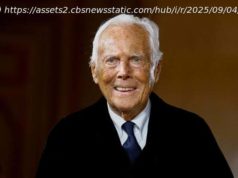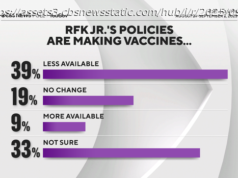It remains to be seen whether Haley’s loss is a devastating setback or just a bump in the road like it was for Sen. Marco Rubio.
You can’t always go home.
Former UN Ambassador Nikki Haley learned this the hard way after a drubbing in the South Carolina GOP presidential primary.
This doesn’t have to be the end. While some former presidential hopefuls have dropped out before suffering similar fates, there are a handful who took the negative headlines and pressed on with their careers. One, George H.W. Bush, lost his adopted home state of Texas only to later win the presidency itself. Based on both sides’ recent comments, though, it appears extremely unlikely that Haley will join Trump on the ticket.George H.W. Bush
Year: 1980
Context: At the time, Bush had compiled a lengthy resume. He had already served two terms in Congress, ambassador to the United Nations under President Richard Nixon, led the Republican Party, and been CIA Director under President Gerald Ford.
The future president began the 1980 primary and caucus season with a shocking victory in Iowa, narrowly edging former California Gov. Ronald Reagan, who had his teeth in the entertainment industry as a sports broadcaster in the state. Bush’s momentum didn’t last long. Reagan started rattling off wins and accruing delegates across the South and Midwest. A New York Times article wasn’t overly harsh on Bush’s loss in the state his son George W. would one day lead, pointing out that he performed well in the Houston area he represented in Congress. (Bush also won his actual birth state of Massachusetts and Connecticut, where he grew up, during the 1980 cycle.)
Still less than a month after the Texas contest, Bush was out of the race. His eventual consolation prize was the vice presidency. He remains the most recent vice president to immediately replace the president they served under.John Anderson
Year: 1980
Context: Anderson, a long-time Illinois congressman, was regarded as a more moderate candidate in the 1980 field. He narrowly lost to Bush in Massachusetts and Reagan in Vermont early in the process. Anderson entered the Illinois primary with some momentum over Reagan, who had also been born in the state but who had established his political career in faraway California.
Reagan won and just over a month later Anderson withdrew from the contest to run as an independent.
Anderson spent the years after the race as a visiting professor at universities across the nation, worked with various nonprofits, and stayed involved in third-party politics.
Pat Robertson
Year: 1988
Roberston had established significant ties to the then-growing Christian right as a televangelist and founder of a Virginia private Christian college.
Домой
United States
USA — mix Nikki Haley just got trounced in her home state. Here's what happened...






